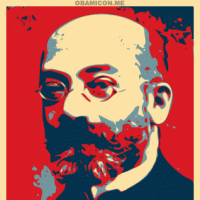メッセージ: 28
言語: English
Spanglanese (プロフィールを表示) 2009年1月14日 4:14:05
Here are some questions I'm curious about:
Is the vocabulary too 'Europe-centric?'
Does it actually allow for the broadest possible cultural expression?
Is the pronunciation fair to non-European language speakers?
What other criticisms have you heard and do you think they're valid?
RiotNrrd (プロフィールを表示) 2009年1月14日 6:54:25
The vocabulary (roots, affixes, etc.) is quite European based.
However, the grammar is unlike that of European languages (although it does a good job of faking it, however it does just as fine of a job mirroring Asian languages, or African languages, etc. - the benefit of a flexible grammar).
The pronunciation is easy for some, difficult for others. I personally cannot pronounce the Esperanto "r" (much easier if you are from France or Spain; I am not). I know plenty of people who cannot pronounce the "Ĥ", and others who are incapable of pronouncing the "ts" combination at the beginning of words (quite easy if you are from Germany - I took 4 1/2 years of German, and have no trouble with those sounds, but some of my classmates... whoof; on the other hand, I took 3 years of French and the "r" still eludes me). And ALL of the people with these pronunciation difficulties speak a European language (English, mainly, as you might imagine).
According to an article Don Harlow posted on his website, he asked a number of Asian esperantists if they had had difficulty with Esperanto, and if they might have found a more "Asian" language easier. Their response was that the Asian languages are much more dissimilar amongst themselves than the European languages are - knowing one Asian language doesn't really help you learn another Asian language. So, while they thought that it may have taken them a bit longer to learn Esperanto than it did for people whose native languages were European (for strictly vocabulary reasons), it still took them less time than it would to have learned another Asian language. They did not consider it troublesome.
I'm not sure that Esperanto is actually easier for some than for others purely because of its resemblance to some other set of languages. Esperanto isn't easy - it's just easier than other languages. I think it's fair to say that it presents difficulties to anyone who learns it. But I think those difficulties vary depending on your native language. What's easy for the Europeans is hard for the Asians. What's hard for the Asians is easy for the Europeans. What's easy for both may be difficult for the Polynesians. And what's easy for the Polynesians... (etc.).
In the end, I think it all washes out. We notice the similarities between Esperanto and our own native language (and think it gives us an advantage), but don't necessarily notice that the differences that are giving us so much trouble may directly mirror that of some other language (for whom they are simple and obvious).
But even if it is biased slightly in favor of European languages... so what? Experience indicates that pretty much everyone can pick it up rather quickly, regardless of where they're starting out. If a European bias shaves a month or two (or even six) off of the learning curve for European-language-natives compared to that of others... big deal. We're talking a trivial amount of time (as far as learning languages goes).
ceigered (プロフィールを表示) 2009年1月14日 9:03:04
 .
.Even then, I'm still a tad biased partially because whenever I see a latin-based root in an IAL I always look at it as if it's some form of 'simplified' Italian, but that's just me personally
 . Concerning that, Esperanto is still more neutral than many other IALs.
. Concerning that, Esperanto is still more neutral than many other IALs. Xyle (プロフィールを表示) 2009年1月14日 12:03:00
Miland (プロフィールを表示) 2009年1月14日 14:33:25
Rodrigoo (プロフィールを表示) 2009年1月14日 15:08:52

Sammondane,
Ĥod
Frakseno (プロフィールを表示) 2009年1月14日 21:15:51
Just my opinion, though.
Zumanto (プロフィールを表示) 2009年1月15日 4:18:18
The reason I voted "yes" is just because of the vocabulary. Almost all of it is Latin or Germanic with a bit of Slavic and a touch of Greek. This is inherently unfair, and there's no way around that.
The flip side though is that there are only 2 ways to make a reasonably fair word list. 1) Choose words more or less randomly from across the world's language familiar and then regularize the pronunciation. 2) Generate words that follow the phonological rules of the language. For example: "book" = kapaso No reason, just random. I don't think there's much support for either position.
So, it's unfair, but short of switching from Esperanto to a different language, there's no much to be done.
I have to agree as well with some of the previous posts about the difficulty of Esperanto for speakers of Asian languages. We can all help by trying to use existing word roots as much as possible rather than trying to introduce new roots.
alexbeard (プロフィールを表示) 2009年1月15日 11:21:35
It's a little unfair. But really, only in the vocabulary. Plus pretty much europe and the US are the major influences in the world...
ceigered (プロフィールを表示) 2009年1月15日 16:28:07

That said I am proud that one of so-called first fluent lojban speakers was an Australian (apparently, maybe I'm thinking of the wrong language). How he learnt such a tongue will go down in history like the origins of the Loch Ness Monster (which we all know is really a plesiosaur).







